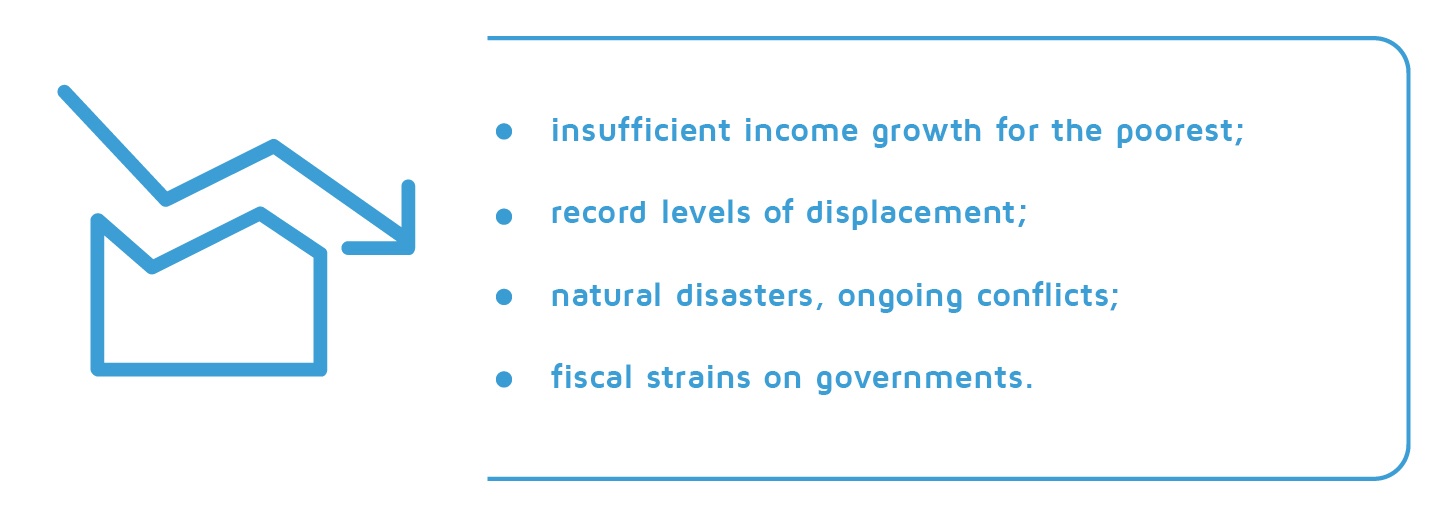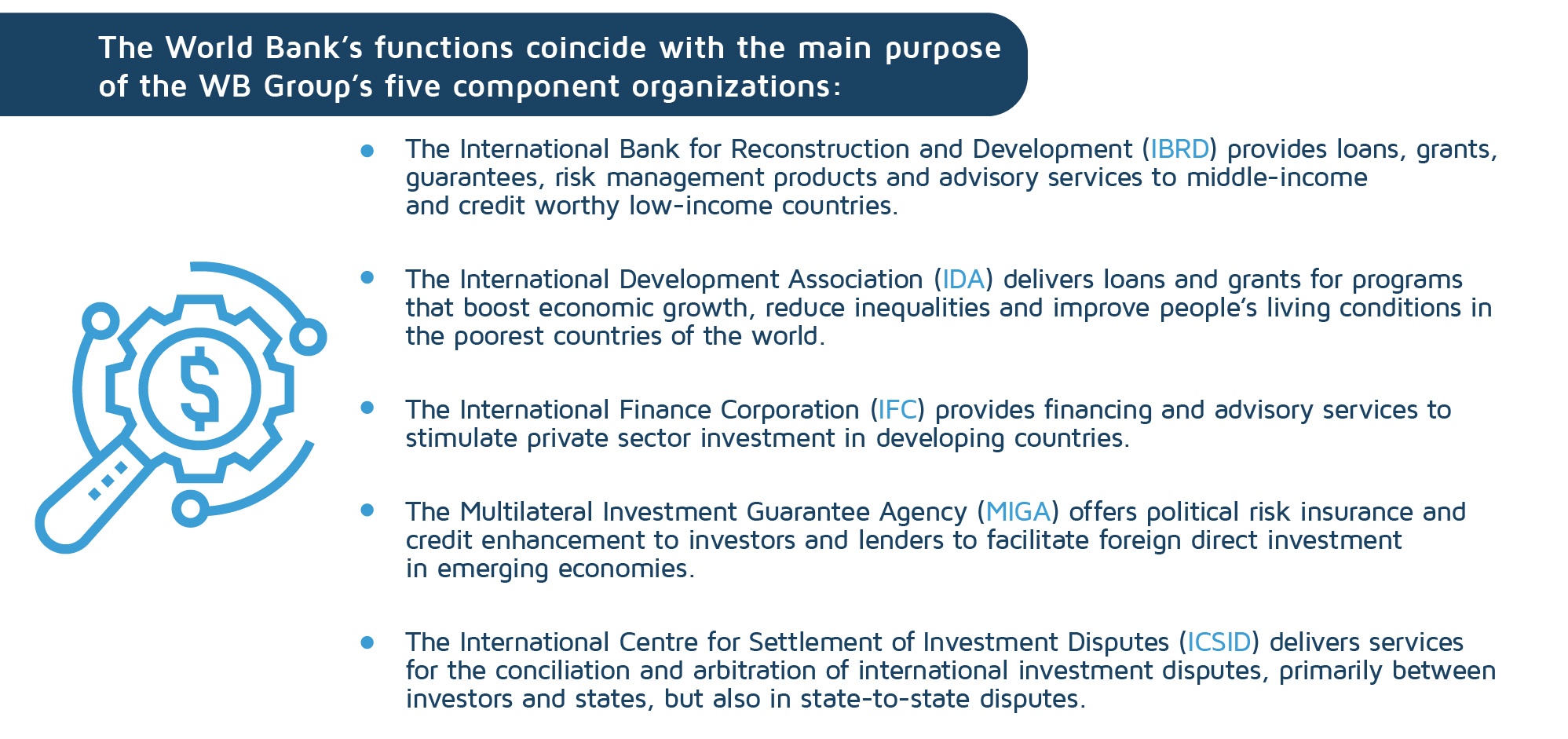The World Bank is the world’s largest development institution, focused to support developing countries to address the most pressing challenges and design better opportunities for their citizens. By providing complex expertise in a wide range of development sectors such as education, reconstruction, environmental protection and governance, the World Bank is succeeding in meeting people’s acute needs all over the world.
In 2020, the World Bank Group (WB) has approved a total of US$77.1 billion in loans, grants, equity investments and guarantees delivered to partner countries and private businesses in those 140 countries of the world where its employees operate. This strong presence worldwide allows it to develop effective interventions in order to advance shared prosperity and end extreme poverty.

Focusing on transforming societies, the WB has a significant role to play in addressing vulnerabilities, increasing resilience and boosting long-term growth prospects. The World Bank Group has set two goals to be achieved by 2030: reducing the number of people living in extreme poverty on less than $1.90 a day to no more than 3% and advancing shared prosperity by boosting the income growth of the bottom 40% in every country. Around 689 million people live below the extreme poverty line. Despite the great efforts have been making, the global poverty rate is about to increase for the first time in over 20 years as a result of the pandemic’s repercussions. Rapid real progresses are threatened by a list of challenges:

People in developing countries are facing huge challenges that require holistic approaches, appropriate policies and committed engagement. Focusing on improving their development outlook, the WB has set a list of objectives in order to bring global solutions to local challenges.

The World Bank’s objectives

Investing in people and supporting inclusive growth
Guided by World Bank teams, governments are already taking concrete actions to provide better opportunities in the areas of social protection, health, education, jobs, financing, and any other essential services people deserve to enjoy. The Bank has set ambitious targets to be achieved in various regions of the world such as increasing human capital investments by 50% in Africa between 2021 and 2023.

Leveraging economic transformation to create more, better and inclusive jobs
Given the devastating repercussions of the pandemic and the growing challenges that developing countries are facing, millions of people will be looking for jobs over the next decade, mostly in the poorest countries. More than 13 million jobs a year need to be created in South Asia in order to cover the expanding population’s needs.
 Reducing gas emissions, adapting to warmer conditions and supporting clean energy
Reducing gas emissions, adapting to warmer conditions and supporting clean energy
Highly vulnerable to the effects of climate change, China, supported by the World Bank, is trying to reduce greenhouse gas emissions (GHG), and promote clean energy. Around US$900 million has been redirected to Chinese companies to stimulate energy efficiency and tighten air pollution control. The WB has announced its commitment to boost investment in battery storage for energy systems in developing and middle-income countries by delivering a US$1 billion program.
 Expanding private sector investments
Expanding private sector investments
Countries are looking to design proper market policies capable of ensuring an attractive environment for private investment and innovation projects. The World Bank delivers support in developing a strong fiscal policy and macroeconomic management, analyzing sector-specific constraints to private investment and identifying recommendations for improving the ease of doing business in their countries.
 Harnessing technology and digital opportunities to tackle challenges
Harnessing technology and digital opportunities to tackle challenges
Only one person in seven in the least developed countries has access to broadband internet. The World Bank aims to digitally enable all people, businesses and governments across the African continent by 2030. The pace of change in modern societies intensifies the need to promote the use of digital technology for economic growth, innovation, job creation and access to equitable services.
 Developing effective governance and institutions
Developing effective governance and institutions
By improving institutional quality and capacity, governments are more likely to connect citizens to better services. As a result of the World Bank’s interventions in Indonesia, the budget allocation to pro-growth and pro-poor programs has increased. The social protection, education, health and water sectors have registered improvements in terms of redesigning better policies and developing programs.
The World Bank continues to improve its operations, strategies and processes to maximize countries’ development impact. The Bank is also working to ensure a deepening engagement with essential partners. The World Bank Group profile, containing the most important aggregated data about the organization’s tenders, projects, and funding, is updated regularly on the DevelopmenAid platform. To stay up to date with the WB activity, become a DevelopmentAid member.

